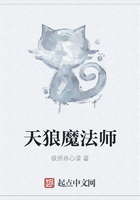YOUNG GENTLEMEN OF THE GRADUATING CLASS: The courtesy of your admirable Superintendent forbids a possible breach in an ancient custom, and lays upon me, as the representative, for the moment, of the Board of Visitors, the pleasant duty of tendering to you their congratulations on the close of your academic career, and your auspicious future.
The people of this country have a heavy stake in the prosperity of this institution. They recognize it as the very fountain of their security in war, and the origin of some of their best methods of education. And upon education in colleges and common schools the pillars of the State assuredly rest.
To participants and to bystanders, this ceremony of graduation is as interesting and as exciting as if this were the first, instead of the seventy-fifth occurrence. Every such occasion is clothed with the splendor of perpetual youth. The secret of your future success lies in the impossibility of your entering into the experience of your predecessors. Every man's life begins with the rising sun. The world would soon become a frozen waste but for the inextinguishable ardor of youth, which believes success still to be possible where every attempt has failed.
That courage which avoids rashness by the restraints of knowledge, and dishonor by the fear of God, is the best hope of the world.
History is not life, but its reflection.
The great armies of modern times which have won immortal victories have been composed of young men who have turned into historic acts the strategy of experienced commanders.
To bystanders, for the same and other reasons, the occasion is profoundly interesting.
For educated men who are true to honor and to righteousness, the world anxiously waits; but an educated man who is false, the world has good reason to dread. The best thing that can be said of this Academy, with its long roll of heroes in war and in peace, is, that every year the conviction increases among the people of the United States, that its graduates are men who will maintain, at all hazards, the ****** virtues of a robust manhood--like Chaucer's young Knight, courteous, lowly, and serviceable.
I welcome you, therefore, to the hardships and perils of a soldier's life in a time of peace. The noise and the necessities of war drive men in upon themselves and keep their faculties awake and alert; but the seductive influence of peace, when a soldier must spend his time in preparation for the duties of his profession rather than in their practice, this is indeed a peril to which the horrors of warfare are subordinate. It is so much easier for men to fight other men than themselves. So much easier to help govern other men than to wholly govern themselves.
But, young gentlemen, as we have listened to your examination, shared in your festivities, and enjoyed personal acquaintance with you, we strongly hope for you every thing lovely, honorable, and of good report.
You who have chosen the sword, may be helped in some trying hour of your coming lives by recalling the lesson which is concealed in a legend of English history. It is the old lesson of the advantage of knowledge over its more showy counterfeits, and guards against one of the perils of our American society.
A man losing his way on a hillside, strayed into a chamber full of enchanted knights, each lying motionless, in complete armor, with his horse standing motionless beside him. On a rock near the entrance lay a sword and a horn, and the intruder was told that he must choose between these, if he would lead the army. He chose the horn, and blew a loud blast; whereupon the knights and their horses vanished in a whirlwind, and their visitor was blown back into common air, these words sounding after him upon the wind:
"Cursed be the coward, that ever he was born, Who did not draw the sword before he blew the horn."Young gentlemen, the Board of Visitors can have no better wish for our common country than that your future will fulfil the promise of the present.
ADDRESS BY MAJOR-GENERAL W. S. HANCOCK.
To me has been assigned the pleasant duty of welcoming into the service as commissioned officers, the Graduates of the Military Academy of to-day.
Although much time has elapsed since my graduation here, and by contact with the rugged cares of life some of the sharp edges of recollection may have become. dulled, yet I have not lived long enough to have forgotten the joy of that bright period. You only experience it to-day as I have felt it before you.
I have had some experience of life since, and it might be worth something to you were I to relate it. But youth is self-confident and impatient, and you may at present doubt the wisdom of listening to sermons which you can learn at a later day.
You each feel that you have the world in a sling, and that it would be wearisome to listen to the croakings of the past, and especially from those into whose shoes you soon expect to step. That is the rule of life. The child growing into manhood, believes that its judgment is better than the knowledge of its parents; and yet if that experience was duly considered, and its unselfish purposes believed in, many shoals would be avoided, otherwise certain to be met with in the journey of life, by the inexperienced but confident navigator.















